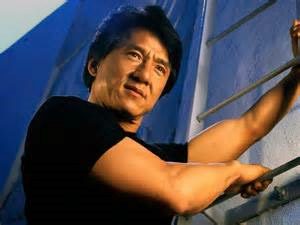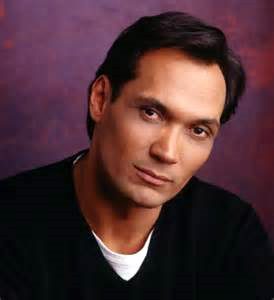Tom Friedman, a prolific writer of politics and economy, has a favorite phrase to describe the behavior of human society. In regards to our attention to really important issues like global warming, environmental destruction, over population and critical resources like water, he says, “Humans are really enjoying the golden age of doing anything we want to the Earth to indulge our overconsumption and indifference about the planet’s resources. It’s like jumping off a tall skyscraper and saying, ‘Look, I’m flying!’ which is enjoyable until the first floor where everything goes splat.”
From the Earth’s perspective, we are easily distracted by bright lights and noise – things like war, Donald, flagrant disregard for the side effects of mass destruction of irretrievable habitat and disruption to the Earth’s sensitive balance of our biosphere. Despite severe warnings from our birth mother, we are trashing ourselves into extinction. “Yes, old news – I’ve heard all this before.” That indifference is the very issue!
We are no more sensitive to the finer threads of existence than our brother monkeys, who in ignorance at least follow the rules. Lust and primitive satisfaction are all we can handle. The dollar bill, an ignorant interpretation of intrinsic value, dominates our self-control. We have no feeling of debt to our planet and in Trumpian fashion, don’t hear what we don’t want to hear.
Our planet is in charge, however, and will tolerate only so much obnoxious abuse and destruction. It will have the last say.
So the primitive and simplistic economy of capitalism – a mistake sanctified only by the industrial age near the end of the 1800’s because it was easy and self-serving – will permit the dollar wealthy to fly in first class to the first floor.
Martin Luther started the Protestant Reformation in 1517. It wasn’t the first attempt but this time it succeeded. For the first time in western civilization, man’s spiritual core was no longer bound to theological virtue. Western Christianity hadn’t always been the wisest ethical guide, what with wars, murder and intense judgmental abuse but still, it was theological and as such had a place for planet stewardship – if only by reference and not by obligation; Adam and Eve had to alight somewhere.
If one thinks about the entire history of religion and faith covering 12,000 years, one is aware in the beginning that the faith part was more the guide to our ethical lives than mortal achievement. Of course it wasn’t perfect but religion played the role of managing our morals from beyond our petty perimeter of day to day life. Then, it still was God’s world; we had an obligation of some sort to planet stewardship and the living environment on it.
Then steam and oil were discovered and new ways through chemistry and engineering were found to increase the cost to the planet for each human. But the big deal was the discovery of the Americas. Humans had their own brand new planet – a blank canvas that God hadn’t mentioned. Western civilization needed a new bible for this opportunity. In 1904, Max Weber wrote the new bible: The Protestant Ethic and the Spirit of Capitalism and in 1915 the new testament, The Theory of Social and Economic Organization. Max Weber was no intellectual slouch; he was well educated and has an impressive bibliography. Max, along with Karl Marx and a few others, emulated Martin Luther in that they opened a new era of human-managed ethics called ‘sociology.’ In very broad terms, according to Guru, ‘sociology’ is a term that implies that human behavior is human-managed behavior.
At that moment in western history, we became our own god. “Why do we behave this way?” Just ask Freud or Yung or Max or Karl – our new set of apostles. What little obligation we had to care for God’s world was replaced by a profit spirited pocketbook in a godless world. It was a Trump moment.
Today, despite many different theologies, disciplines and practices, there is no way for us to reach beyond our belief in our own social behavior. We are our destiny; we need no validation at the Holy Gate.
It was Madeleine Albright who commented, “You can’t expect Congressmen to tackle global issues; they were elected to bring home the goods today.”
The mariner has mentioned in the past many, many times that we are in the midst of great universal change – greater even than just the Earth’s biosphere. We are on increasingly stormy seas. Where is our compass? Is it whatever provides us the most dollars? Is it even more humans? Is it war? What device among us is not tarnished by us? What will give us guidance to focus on issues of humanity and not on issues of our ego? Dare we restore discarded religious virtues cast in a modern perspective? Where is our compass to show us the way to care beyond our simian prerogative?
ADDENDUM – Mariner received an email from his advocacy organization, Food and Water Watch.; a very above board, independent and serious group that looks out for our wellbeing:
Food & Water Watch
Everett,
We just got our hands on Trump's to-do
list for the EPA - and as expected, it's
horrifying. Starting today, the Trump
administration will start trying to methodically
gut the Environmental Protection Agency.
On inauguration day, the Trump
Administration took all references to climate
change off of the White House website. Now,
they're beginning a months-long rollout of
budget cuts and roll backs of key regulations
designed to protect our air, water and climate
from corporate polluters.
The leaked to-do list makes it clear that
Trump will follow through on promises to gut
the agency.
* The document identifies opportunities to
cut programs, including $513 million from
"state and tribal assistance grants," $193
million from ending climate programs and
$109 million from "environmental programs
and management."
* The administration outlines initiatives
they want to stop, including "Clean Air Act
greenhouse gas regulations," clean car
standards and clean water protections.
* The to-do list also includes a plan to
permanently change how the EPA uses
science to prevent the agency from returning
to "its bad old ways as soon as an
establishment administration takes office."
Ancient Mariner











